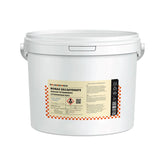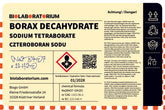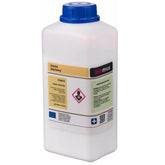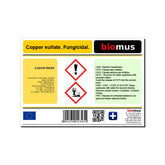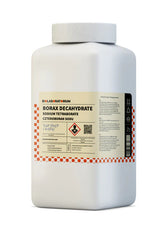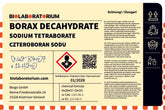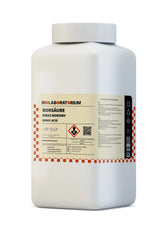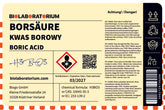Agar in the Laboratory and Industry – a versatile technical material
Agar is a fascinating and versatile material used in a wide range of applications in the laboratory and industry. This natural polysaccharide, derived from red marine algae, has a unique combination of properties that make it an indispensable material in numerous industries.
The Origin and Extraction of Agar
Agar is a biopolymer obtained from the cell walls of certain red algae. The main suppliers are species such as Gelidium and Gracilaria, which are found primarily in the coastal regions of Asia, Africa, and South America. The extraction process is relatively simple: the algae are harvested, dried, and then dissolved in water through a boiling process. Subsequently, the solution is filtered and dried, resulting in pure agar powder.
Agar is characterized by a series of unique properties that make it such a versatile material. For one, it has a high gelling ability – even low concentrations of 0.5 to 2 percent are sufficient to form stable gels. At the same time, agar is thermoreversible, meaning it melts when heated and solidifies again when cooled. Furthermore, it is tasteless and odorless, which makes it ideal for many applications.
Agar in Microbiology and Biotechnology
One of the main applications of agar is certainly microbiology. Here it serves as a nutrient medium for the cultivation of bacteria, fungi, and other microorganisms. Agar nutrient media provide microbes with an ideal matrix in which they can grow and thrive. Due to its transparency, agar also enables the visual observation and analysis of cultures.
In biotechnology, agar is also widely used – for example, in the production of vaccines, enzymes, or other bioproducts. Here, one benefits from the material's ability to support and structure cell cultures. Agar hydrogels serve, for instance, as support material for immobilized enzymes or as a matrix for cultivating mammalian cells.
Agar in the food industry
In addition to applications in science, agar also finds diverse uses in the food industry. Here, its gel-forming properties are utilized to create textures and consistencies in products such as jams, gelatins, desserts, or baked goods. Agar is a high-quality, natural thickening agent that is also thermostable and thus maintains its structure even when heated.
Furthermore, agar serves as a stabilizer, emulsifier, and gelling agent in the food industry. It enables the production of creamy, smooth products with long shelf life. Last but not least, agar is also interesting for vegetarians and vegans, as unlike animal gelatin, it is completely plant-based.
Technical applications of agar
In addition to its applications in science and food production, agar is also used in many technical applications. Here, one benefits primarily from its ability to form stable gels, as well as its temperature resistance and inertness toward chemical influences.
Agar in printing technology
An interesting application field is printing technology. Here, agar serves as a component of printing inks, dyes, and varnishes. Its gel-forming properties enable precise adjustment of the viscosity and flow characteristics of these materials. Furthermore, agar is also used in screen printing technology to produce printing stencils.
Agar in the electronics industry
Agar also finds diverse uses in the electronics industry. On one hand, its insulation properties are utilized to encapsulate electronic components and protect them from moisture. On the other hand, agar serves as a support material for conductive coatings in displays or sensors.
Further technical applications
In addition to the mentioned application areas, agar is also used as:
- Thickening agent in cosmetics and personal care products
- Stabilizer in paints, varnishes, and adhesives
- Auxiliary agent in paper production
- Binder in ceramics and building materials
- Support material in chromatographic techniques
The versatility of agar is thus demonstrated in a wide range of applications in industry, technology, and science. Its broad spectrum of useful properties makes it an indispensable material in numerous sectors. Whether in microbiology, food production, or the electronics industry – agar is a fascinating and versatile material that will continue to play an important role in the future.

